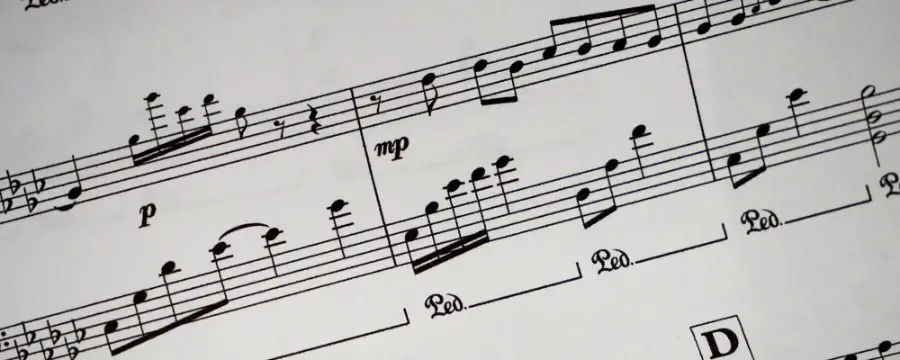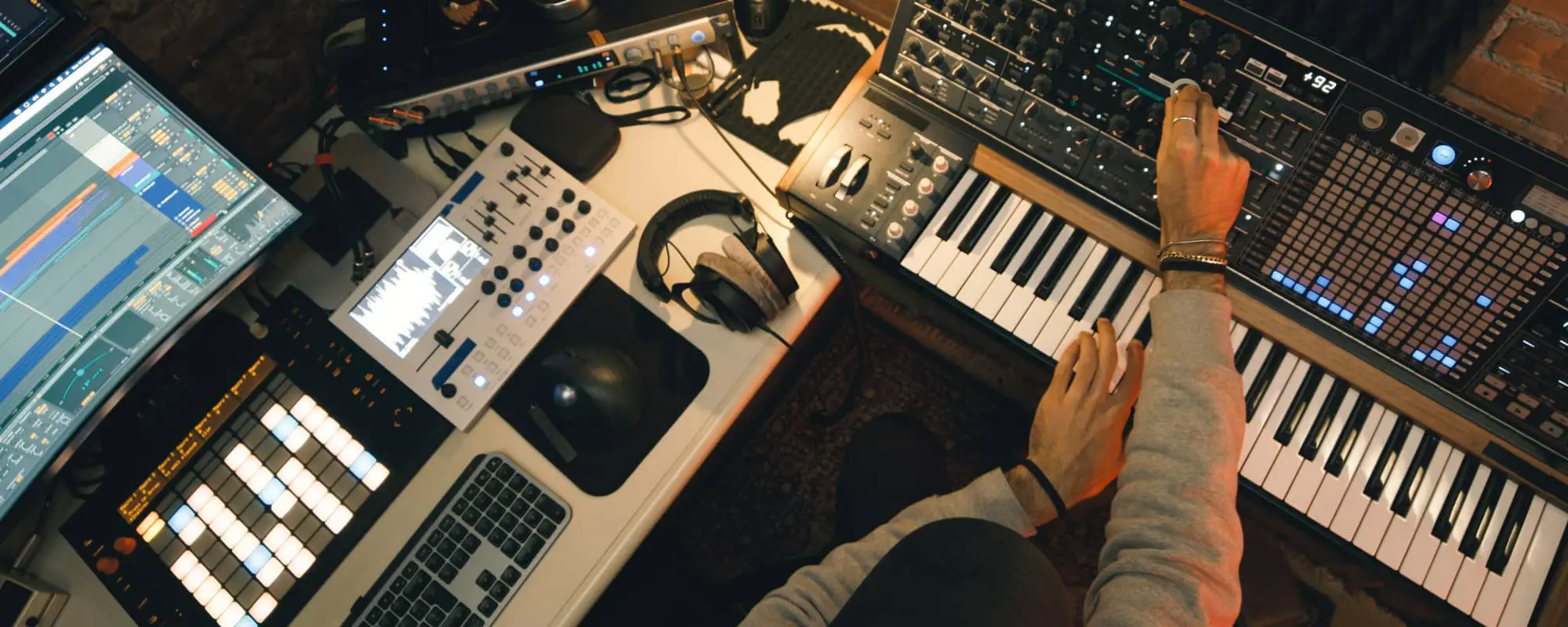Music production is a critical aspect of the music industry. It involves the creation and manipulation of sound to produce a final musical composition. With the rise of digital audio workstations (DAWs) and home recording equipment, music production has become more accessible than ever before.
One question that often arises when discussing music production is whether or not it is necessary to know music theory. Some argue that music theory is essential to creating great music, while others believe that it is not necessary and that creativity is the only requirement for success in music production.
While knowledge of music theory can be beneficial for music production, it is not strictly necessary. Creativity and experimentation can lead to innovative and unique musical productions, even without formal music theory training. However, if you’re interested in creating complex and musically rich compositions, then knowledge of music theory can be beneficial. Ultimately, whether or not you need to know music theory to produce music depends on your goals as a producer.
In this article, we will explore the topic of music theory and its relevance to music production. We will examine the benefits of knowing music theory, common misconceptions about music theory, and whether or not it is possible to produce music without music theory knowledge. We will also provide resources for those who are interested in learning more about music theory.

What Is Music Theory?
Music theory is the study of the fundamental elements of music, including rhythm, melody, harmony, and form. It provides a framework for understanding how music works and is used to analyze, compose, and perform music.
Rhythm refers to the timing of musical notes and rests. It includes concepts such as tempo, meter, and syncopation. Melody refers to the sequence of notes played in a particular order to form a musical phrase. Harmony refers to the combination of different notes played at the same time to create chords and chord progressions. Finally, form refers to the structure of a piece of music, including the arrangement of sections and the repetition of musical ideas.
Understanding music theory can provide producers with a greater understanding of these elements and how they work together to create a cohesive musical composition. This knowledge can be used to improve the overall quality of a production and to communicate more effectively with musicians and other industry professionals.

The Benefits Of Knowing Music Theory
Knowing music theory can provide several benefits for music production. Here are some of the ways in which music theory knowledge can improve your productions:
-
Composing Music
Understanding music theory can help you create more complex and interesting compositions. You’ll have a better understanding of melody and harmony, which will allow you to create more complex chord progressions and melodies that are more musically pleasing.
-
Arranging Music
Arranging music involves making decisions about the structure of a composition, including the arrangement of sections, the instrumentation, and the overall sound of the production. Knowledge of music theory can help you make more informed decisions when arranging music. You’ll have a better understanding of how different instruments and sounds can work together to create a cohesive musical arrangement.
-
Mixing Music
Mixing involves balancing the different elements of a musical production to create a final mix that is musically pleasing. Knowledge of music theory can help you make more informed decisions when mixing music. You’ll have a better understanding of how different instruments and sounds work together to create a balanced mix.
-
Communicating With Musicians & Industry Professionals
Knowing music theory can help you communicate more effectively with musicians and other industry professionals. You’ll be able to explain musical concepts and ideas more clearly, which will help you collaborate more effectively on musical productions.
In summary, knowledge of music theory can provide a solid foundation for producing high-quality music. Whether you’re composing, arranging, mixing, or communicating with industry professionals, understanding the basic elements of music theory can improve your productions and make you a more effective music producer.

Common Misconceptions About Music Theory
There are several misconceptions about music theory that can prevent people from learning it or believing that it’s necessary for music production. Here are some of the most common misconceptions:
-
Music Theory is Too Complex
Many people believe that music theory is too complex and difficult to understand. While there are certainly complex aspects to music theory, the basics can be learned relatively easily. Starting with the fundamentals and building upon that knowledge can help make music theory more accessible.
-
Music Theory Limits Creativity
Some people believe that knowing music theory can limit creativity by imposing rules and restrictions on musical composition. However, music theory can actually provide a framework for creative expression by giving producers a deeper understanding of how music works and the different elements that can be combined to create unique and interesting compositions.
-
Music Theory is Only for Classical Music
Another common misconception is that music theory is only relevant to classical music. While music theory has its roots in classical music, it is applicable to all genres of music. Knowing music theory can help producers understand the underlying structure and elements of any type of music, from pop to jazz to electronic dance music (EDM).
These common misconceptions can prevent people from learning music theory and understanding its relevance to music production. However, by understanding the basics of music theory and its practical applications, producers can use this knowledge to enhance their productions and improve their overall musical skills.

Can You Produce Music Without Knowing Music Theory?
While knowing music theory can provide significant benefits to music production, it is possible to produce music without knowing music theory. Many successful producers have created hit songs without formal training in music theory.
However, it’s important to note that knowing music theory can provide a significant advantage when it comes to producing high-quality music. While some producers may have an innate understanding of music, others may need to study music theory to achieve similar results.
Additionally, it’s important to consider the genre of music you’re producing. Certain genres may rely more heavily on music theory knowledge, such as classical or jazz music, while others may place less emphasis on it, such as electronic dance music (EDM) or hip-hop.
Ultimately, the decision to learn music theory should be based on personal preference and goals. If you’re interested in producing music at a professional level and improving your overall musical skills, then learning music theory may be a worthwhile investment. However, if you’re primarily interested in experimenting with music production and don’t feel the need to learn music theory, then it may not be necessary.
While it is possible to produce music without knowing music theory, learning music theory can provide significant benefits to music production and improve your overall musical skills. The decision to learn music theory should be based on personal goals and interests.

How To Learn Music Theory For Music Production
If you’re interested in learning music theory for music production, there are several resources available to you. Here are some options:
-
Online Courses & Tutorials
There are numerous online courses and tutorials available that cover the basics of music theory. Websites like Udemy and Coursera offer music theory courses for all levels of learners. Additionally, YouTube has countless video tutorials on music theory concepts.
-
Books
There are many books on music theory available, ranging from beginner to advanced levels. Some popular options include “Music Theory for Dummies” by Michael Pilhofer & Holly Day, and “Music Theory for Electronic Music Producers” by Dr. J. Anthony Allen.
-
Music Schools & Colleges
Many music schools and colleges offer formal music theory courses for students interested in music production. These courses can provide a more structured learning experience and the opportunity to work with other musicians and producers.
-
Collaborating With Musicians
Collaborating with musicians who have formal music theory training can also be a great way to learn music theory. Working with others can help you develop a deeper understanding of music theory concepts and how they can be applied to music production.
By taking advantage of these resources, you can develop a deeper understanding of music theory and apply it to your music productions. Finding the approach that works best for you will depend on your learning style and goals as a music producer.

Conclusion
In conclusion, knowledge of music theory can be a valuable tool for music production. It can help producers understand the underlying structure of music and create compositions that are musically rich and complex. However, it’s important to note that music theory is not strictly necessary for producing great music. Many successful producers have created innovative and unique compositions without formal music theory training.
Whether or not you choose to learn music theory for music production is ultimately up to you and your goals as a producer. If you’re interested in creating complex and musically rich compositions, then knowledge of music theory can be beneficial. However, if you’re more focused on experimentation and creative expression, then formal music theory training may not be necessary.
In the end, the most important thing is to keep creating and experimenting with music. Whether or not you have formal music theory training, the key to success as a music producer is to stay curious, open-minded, and dedicated to your craft.

Related Posts:
Music Theory Glossary: 65 Music Terms You Need To Know
The Formula To Major & Minor Scale
How To Read Piano Sheet Music
Want To Know More?
Here at Live Aspects, we have dozens of useful lessons and tutorials created to enhance your music production skills and help speed up the learning process. You can access our huge range of music theory lessons and production tips and tricks here.